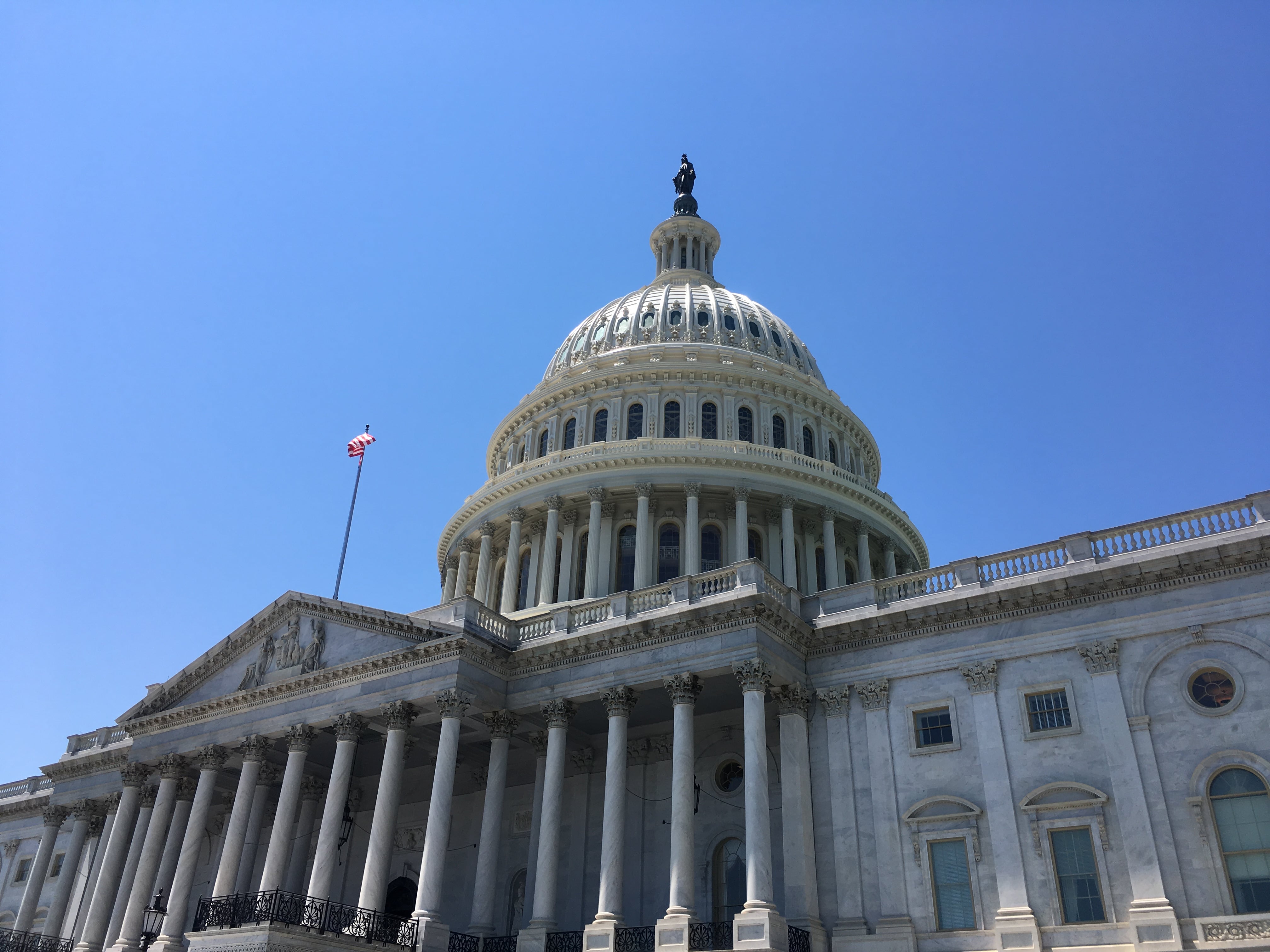President Donald Trump on Thursday reiterated his vow to veto the annual defense authorization bill rather than allow it to become law, but White House officials still have not provided a timeline for when that attempt to block the legislation may happen.
The commander-in-chief took to Twitter to level his latest veto threat, writing Thursday that the veto “will make China very unhappy. They love [the bill].”
Trump also said that a revised version of the annual defense budget policy bill “must have Section 230 termination, protect our National Monuments and allow for removal of military from far away, and very unappreciative, lands.”
Both the House and Senate passed the $740.5 billion measure earlier this month by margins large enough to override a presidential veto. Lawmakers in recent days have worked to discourage Trump from blocking the measure, even temporarily, saying that the legislation provides critical authorities and reforms for the Defense Department.
“[The bill] will keep our forces ready to deter China and stand strong in the Indo-Pacific,” Senate Majority Leader Mitch McConnell said on Dec. 10. statement. “This legislation will secure wins on priorities that all of us share.
“It does not contain every policy that either side would like to pass. But a huge number of crucial policies are included and a lot of bad ideas were kept out.”
On Tuesday, Senate Minority Leader Chuck Schumer, D-N.Y., said on the Senate floor Tuesday that “if President Trump takes the rather ridiculous step of veto-ing a pay raise for our troops in order to defend the honor of dead Confederate traitors (or whatever other contrived grounds he comes up with), Congress must override that veto.”
The 4,500-plus-page bill authorizes a broad array of military equipment purchases and personnel policies, including renewal of dozens of specialty pays and bonuses, granting new disability benefit eligibility for thousands of Vietnam veterans, and the launch of several new military family assistance and housing programs set next year.
But Trump has objected to the measure in recent days because he believes it benefits China. Members of Congress call that criticism nonsensical and off-base.
Trump has also complained the measure lacks language stripping legal protections from social media companies. Lawmakers have said those “section 230” issues aren’t germane to this bill.
And Trump for months has threatened a veto over language in the bill that would mandate renaming bases which currently honor Confederate leaders. That idea had bipartisan support in Congress.
The timing of the veto — and a possible override — has been complicated by Congress’ end of year schedule.
Trump has 10 days (not including Sundays) after Congress’ final action on the measure to veto it. That means he’ll have until Dec. 23 to formally issue the veto. Senate Armed Services Committee Chairman Jim Inhofe, R-Okla., said on Thursday he expects Trump to wait until the end of the 10 days to issue the veto.
Arnold Punaro, a retired Marine Corps major general and a former staff director for the Senate Armed Services Committee for eight years, said the president won’t be able to use a “pocket veto” — simply letting the clock run out without his signature — because Congress has opted to stay in session through the holiday recess to prevent such a move.
But if Trump levels a veto after most lawmakers leave town for Christmas break this weekend, chamber leaders will face timing issues getting them back in town to override the veto before the new session of Congress starts on Jan. 3.
One possibility is having a special final session of the current Congress before the Jan. 3 convening, but that would involve inviting back multiple members who will not be returning in the next Congress. Travel and group gathering restrictions due to the ongoing coronavirus pandemic could also cause logistical problems.
For an override vote, each chamber has to have a quorum present (more than half of the total number of lawmakers) and two-thirds of those present must vote against the president. Since 1961, there have been 382 vetoes and only 38 successful overrides.
RELATED

But Punaro said Trump’s veto gambit isn’t likely to be as successful, in large part because his demands about section 230 reforms don’t make procedural sense. Inhofe has already rejected the idea of including in the defense bill.
“Having watched this for a long period of time, you can veto something out of a bill, but I’ve never seen anyone veto something into a bill,” Punaro said.
“This provision wasn’t in the jurisdiction of either the House or Senate Armed Services Committee. [The White House] wanted it in the bill and it wasn’t in the bill. That, as Chairman Inhofe has said, is a non-starter.”
House Armed Services Committee Chairman Adam Smith, D-Wash., has said in recent days that if Trump’s veto is not overridden, lawmakers don’t have a backup plan for the authorization bill. Crafting a second measure will take months, and likely still won’t address the social media legal issues the president says he wants in the bill.
The defense authorization act has been signed into law for 59 consecutive years, and is widely viewed as one of the last true areas of bipartisan cooperation and agreement in Congress.
Leo covers Congress, Veterans Affairs and the White House for Military Times. He has covered Washington, D.C. since 2004, focusing on military personnel and veterans policies. His work has earned numerous honors, including a 2009 Polk award, a 2010 National Headliner Award, the IAVA Leadership in Journalism award and the VFW News Media award.
Joe Gould was the senior Pentagon reporter for Defense News, covering the intersection of national security policy, politics and the defense industry. He had previously served as Congress reporter.








